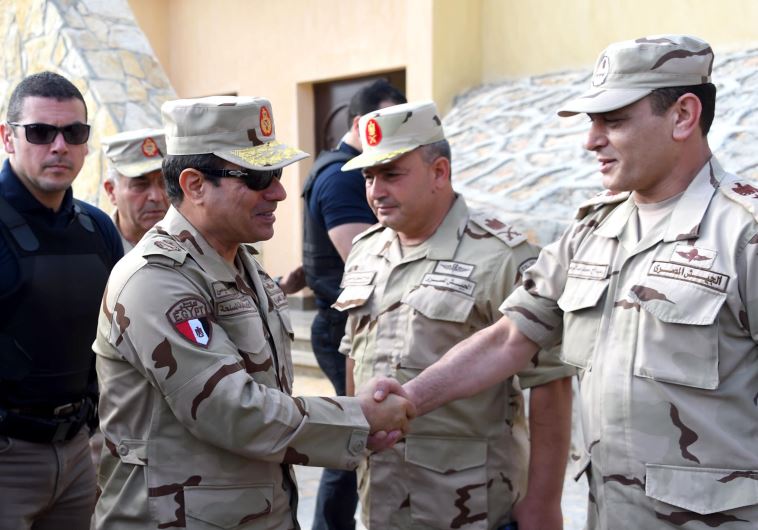Analysis: ISIS in Sinai can expect more funds, and more Egyptian attacks
A new Egyptian assault on the group now seems a matter of time following the bombing of a Russian airliner, which murdered 224 civilians.
 Al-Sisi in uniform making trip to Sinai(photo credit: MOHAMED ABDELMOATY / EGYPTIAN PRESIDENCY / AFP)
Al-Sisi in uniform making trip to Sinai(photo credit: MOHAMED ABDELMOATY / EGYPTIAN PRESIDENCY / AFP)